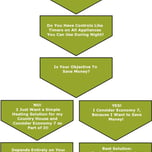- GreenMatch
- Blog
- What Is the Impact of the Green Jobs Movement on the Labour Market?
What Is the Impact of the Green Jobs Movement on the Labour Market?
With the global rise of green jobs, the labour market is in the process of shifting from more CO2 reliant jobs to those that are environmentally friendly. This has created the ‘environment vs. jobs’ debate, which discusses the impact that green jobs are having on the labour market.
The primary argument against the green job movement is that the shift towards these types of jobs is going to make current jobs obsolete and that many people will become unemployed because of this. The argument for the green job movement is that with climate change and its negative effects on the local and global quality of life, any step towards reversing these issues must be taken.
Whether for or against the changes, both groups are in agreement over the fact that the green job movement is here to stay. This is because the momentum of its growth has assured not only its supporters but also its government and corporate backing.
Therefore, going into more depth with the environment vs. jobs debate is necessary for multiple reasons. Two of these are that it can help us understand both sides of the debate and that it can help us be prepared for the present and future issues surrounding sustainable jobs and the labour market.
GreenMatch has gathered information and has compiled an infographic in order to answer these questions. The infographic is structured around some of the key issues within the jobs vs. environment debate.
Firstly, it analyses how the present global and UK job market have been impacted by the green movement in terms of job opportunities. Secondly, it presents projections regarding how the movement will grow in the future and what qualifications will be required to get employed. Thirdly, the infographic discusses how present jobs are changing in order to accommodate green solutions and what the future job titles are going to be.

If you would like to use this infographic on your website, use the embed code below:
We strive to connect our customers with the right product and supplier. Would you like to be part of GreenMatch?




